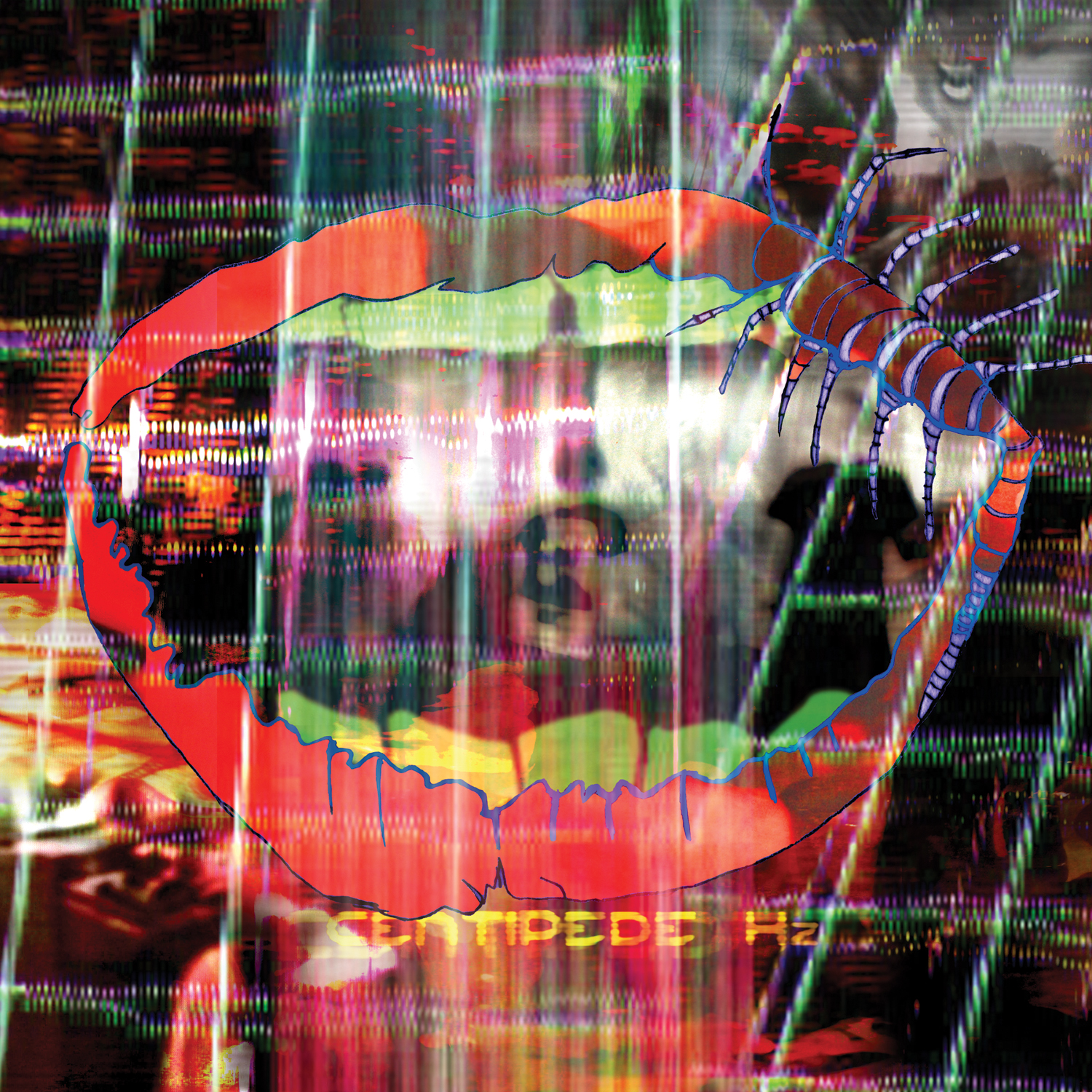Recently, a friend of mine and I were discussing a nugget he’d heard from a mutual mentor of ours: when a thing recurs once in a piece of art, it’s a repetition – an echo, affirmation, or simultaneous point A and B carving a circle in a flat plane, among plenty of like devices. When a thing recurs twice or more times, however, it forms a pattern, and should be considered a system of its own alongside the systemic or fractal machines in art, geometry, and in the world – especially nature – that possess, generate, or inspire meaning through the enactment of that pattern. Nobody who has even seen the Merriweather Post Pavilion cover art would raise an eyebrow at the notion that Animal Collective is interested in patterns, and it’s valuable to keep that fascination in mind when spelunking the mammoth, complicated musical dialogues that become the awesome Centipede Hz, an album as much in conversation with broadcasting as a communicative action as it is the condition of being alive in 2012.
Broadcasting serves as an interesting lens for both the album’s biography and its thematic style. The band streamed the whole thing before its release as a part of an online radio show, and then put it up on their website accompanied by visuals by Abby Portner, Avey Tare’s sister, taking the opportunity to be the ones delivering the album to eager listeners early, walking a line between the traditional and contemporary idea of what an album’s release is. In an age where just about everything leaks, it’s a happy compromise. Animal Collective’s material has often engaged memory and placement in time, and here the “I like turtles” YouTube sample on “Monkey Riches” and the insectoid radio re-tunings between tracks posit that this artifact, Centipede Hz, exists in the context of all different modes of media and media broadcasting, and is informed by the band’s collective conscious and subconscious memory of them – all those replays of “Love Me Do” heard from the back seat of a blue Camino.
Album-opener “Moonjock” addresses memory more concretely, and from the opening globs of electric guitar, it’s clear what having Deakin back in the band means. Like on Strawberry Jam, the majority of the album’s vocals are Avey’s, but Panda Bear’s no slouch on either backups or the radical high-point “New Town Burnout.” There are also Deakin songs, and Geologist’s fingerprints are all over, notably on “Rosie Oh,” a Beatles-y tune that sounds like it’s being played in the Museum of Jurassic Technology by a gang of squeaky-toys.
It’s sometimes difficult, considering the size of the audience the band has amassed, to remember that they have a significant and varied tradition of challenging listeners, even on Merriweather, whose polychromatic eddies were tough on some Animal Collective lifers. Centipede Hz is dense and unforgivingly full-throttle – you’ll find no “Loch Raven” or even “Chores” here – and home to some of the band’s best and most involved lyrics to date.
In its lyrics are some of the album’s more spectacular challenges – mazes, misdirections, minotaurs – and rewards. On “Applesauce” Avey Tare stretches a fruit metaphor beyond what it can reasonably be stretched to, unpacking the song into the question: is this an Avey sex song, or isn’t it? The ambiguity is a smokescreen for its reveal “I’m losing things so fast!” which shakes the whole song to a new register, and introduces the deeply sad image of Avey’s imagined child – fatherhood feeling at once so close and so far away.
Panda Bear captains “New Town Burnout,” a huge-sounding song that is affecting on a visceral level, bombast countering a sobering meditation – standout evidence of one thing the album compiles to: a litany of variations on frailty in the face of the brain’s constant transmission. Panda’s voice is overcome by ghastly choir arpeggios and what sounds like a machete bowing a violin made of lightning. “Monkey Riches,” a barbed confession, continues the theme further. Here Avey Tare is the “cerebral spouse,” preoccupied by stasis, aging, mortality, financial responsibility, and what it means to be at once a musician and an adult in a loving relationship. He tears the wall between us down – “It makes me wonder how I even wrote this song” – and the effect is kind of repulsive, but that repulsion is the tension of the track and of the situation Avey’s speaking to.
Rounding out the journey, Centipede Hz‘s closer, “Amanita,” is a gem. Guitars and bleepy sounds chirp and swirl while Avey sings about stories, fantasies, and imagination. He asks himself what’s next and responds that he’s going to:
“Go into the forest
Until I can’t remember my name
I’m gonna come back and things will be different
I’m gonna bring back some stories and games”
This closing, which repeats in a delightful whirlwind of guitar, chomping sounds, and trash-can bashes before revealing a faint, aching string part running beneath, is Animal Collective’s strongest closing since Spirit They’re Gone, Spirit They’ve Vanished. The forest has always been a primal element in Animal Collective’s universe, as has the naming of things, emphasizing these sentiments just before the transmission cuts out feels like a wink and a promise – an incredible prize that only reinforces the gravity of the exploration and the sum of what is experienced having happened to tune in.


